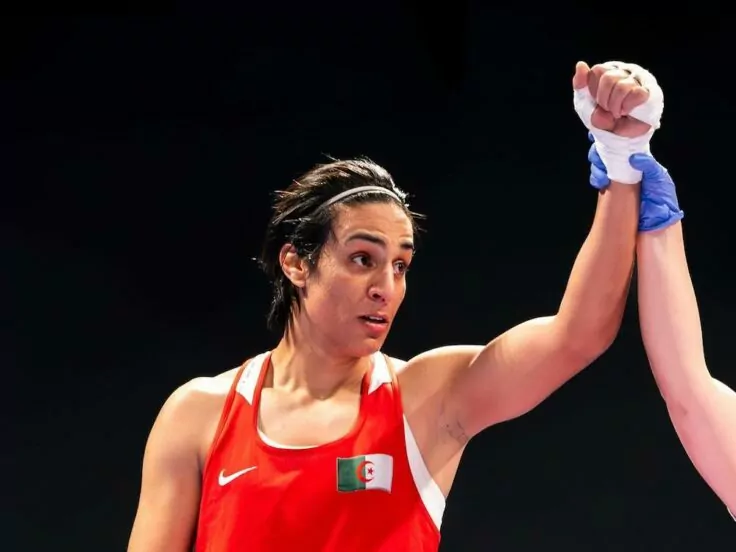
[UPDATE: Khelif just won the Gold Medal in women’s boxing!]
Last Thursday social media blew up with allegations that a “man” had somehow gotten into Olympic women’s boxing.
Nevermind that Imane Khelif was born a girl in Algeria, a conservative country where 99% of the population is Sunni Muslim, where one can be imprisoned for same-sex intimacy, and where trans identities and gender transitions are forbidden. Nevermind that she had been boxing professionally as a woman for many years, including at the 2021 Tokyo Olympics, where she did not medal.
No, after Italian boxer Angela Carini dropped out of their match after 46 seconds, saying she had never been punched so hard and refusing to shake her opponent’s hand, suddenly Khelif found herself in the middle of an international culture war.
Nevermind that Carini later apologized, saying, “All this controversy makes me sad… I’m sorry for my opponent, too. If the IOC said she can fight, I respect that decision.” She doesn’t regret abandoning the fight, but she regrets not shaking Khelif’s hand. “It wasn’t something I intended to do,” Carini said. “Actually, I want to apologize to her and everyone else. I was angry because my Olympics had gone up in smoke.” She added that if she met Khelif again, she would “embrace her”.
No. Suddenly, Imane Khelif became the perfect target for anti-transgender activists to attack.
Within an hour, J.K. Rowling had tweeted to her 14 million followers:
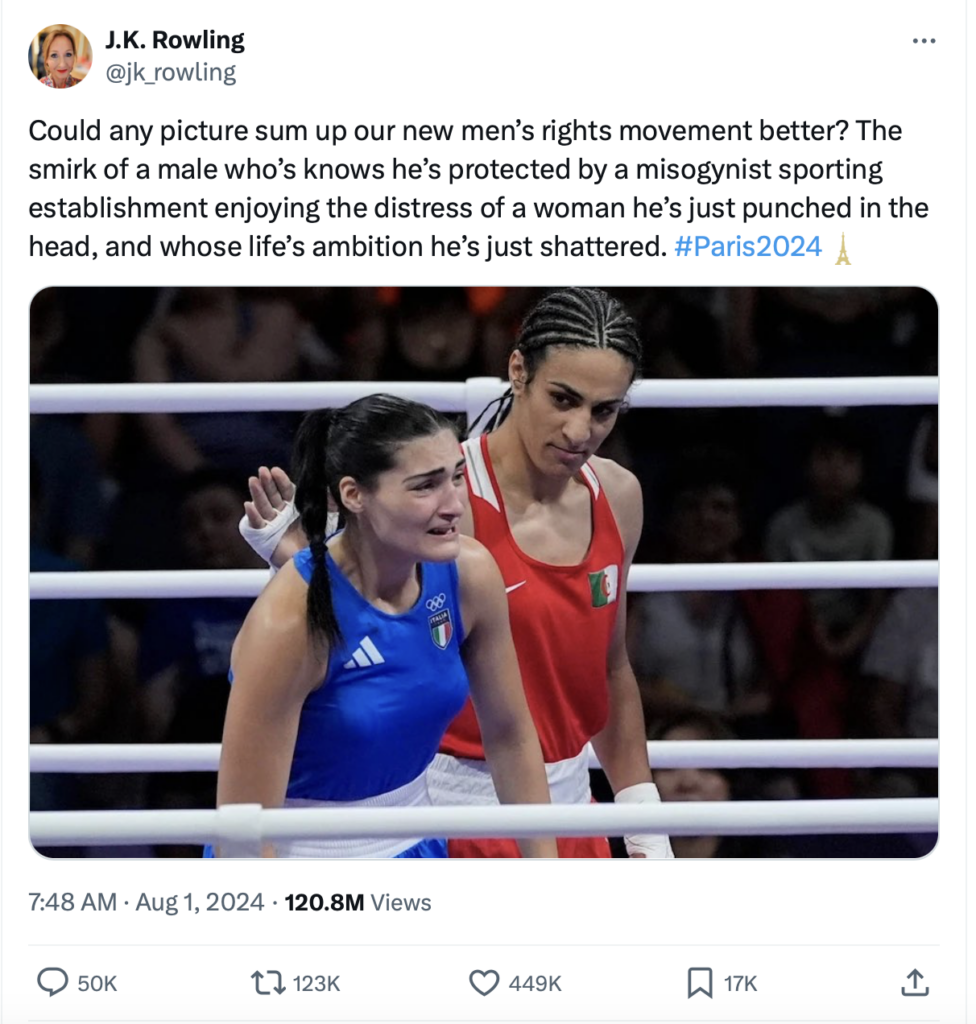
Other culture warriors with enormous social media followings soon followed, including Elon Musk, Donald Trump, Charlie Kirk and Republican VP Candidate JD Vance, who, true to form, weighed in on a decision made by the International Olympic Committee about games in FRANCE and a match between boxers from ITALY and ALGERIA and blamed it on the Democratic nominee for President in the UNITED STATES, tweeting, “This is where Kamala Harris’s ideas about gender lead: to a grown man pummeling a woman in a boxing match. This is disgusting, and all of our leaders should condemn it.”
Eight days later, that tweet is still up, as is Rowling’s.
Suddenly everyone was an expert on sex, gender, chromosomes and hormones. “XY chromosomes make HIM a MAN!” Nevermind that, to date, no one has shared any evidence of XY chromosomes!
Friends, sex and gender is so much more complicated than our 8th grade biology led us to believe.
In the aftermath of that boxing match, I started listening to a fascinating podcast from CBC and NPR called Tested. Check out this description:
Who gets to compete? Since the beginning of women’s sports, there has been a struggle over who qualifies for the women’s category. Tested follows the unfolding story of elite female runners who have been told they can no longer race as women, because of their biology. As the Olympics approach, they face hard choices: take drugs to lower their natural testosterone levels, give up their sport entirely, or fight. To understand how we got here, we trace the surprising, 100-year history of sex testing.
It was an incredibly compelling and timely listen, as the controversy around Khelif raged. The thing is, this is nothing new! People have been trying for a century now to find the definitive way to answer the question “What is a woman?”
What I found particularly ironic this week was that in their insistence that Khalif was actually a man… weren’t these conservative culture warriors and all the people who shared their perspective on social media accidentally promoting gender-affirming care for transgender people?
If Imane Khelif – assigned female at birth and raised as a girl in a conservative religious family and community with no one questioning it – was, from their perspective, “actually a man,” were they perhaps arguing that she should have transitioned at puberty? Started testosterone? Begun using he/him pronouns? Do they think that would have been more appropriate? Is that what Rowling, Musk, Kirk, Vance and others think should have happened?
Which is it? What you’re assigned at birth? What your chromosomes say? How much testosterone or estrogen your body naturally produces? What genitalia your body is born with? How your family raises you? Or how you look on the outside? What the world sees when they look at you? How you feel on the inside?
So many people on Twitter shared photos of Khalef with variations of: “I know what a woman looks like, and THIS AIN’T IT.” Oh really, Bob from Tucson, you are an expert on gender just from looking at a photo?
Listen, I’ve been around some very butch lesbians since coming out in 2016. I promise you, these cisgender women are not men, but they could probably beat up Bob from Tucson.
I think what I’m trying to get at is the incredible dehumanization, the ways the world has ALWAYS insisted that women perform femininity. If they don’t do it just right, well then… someone has to pay something.
In America Ferrera’s now-famous monologue from Greta Gerwig’s Barbie film, she talks about the pressures that all women face. This tweet that circulated in the wake of the Khelif scandal is a poignant reminder that women are ALWAYS performing, ALWAYS on display for the world to inspect, to critique, to fight over.

Here’s the thing: I’m not claiming to know the truth about Imane Khelif’s body. But you shouldn’t either. And can we admit that the fact that we’re even having this conversation is appalling? The world should be celebrating that a little girl from Algeria who once had to collect dishes and sell bread in the streets has grown into an internationally-acclaimed athlete!
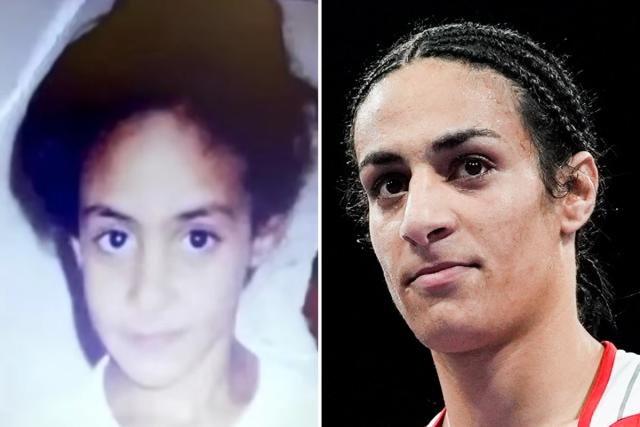
And instead of pontificating on social media to score points for our sides, maybe we should slow down and admit that this is a whole lot more complicated than a simple binary. If they haven’t been able to figure it out for a hundred years of women’s sports, you probably aren’t the expert you think you are, and neither am I.
And even for those who claim that the Bible teaches a simple binary… that God created “male” and “female” and nothing in between, I love to point to this beautiful reflection by Mick Atencio.

My trans and nonbinary friends have opened my eyes and my heart to a much broader understanding of sex and gender than I held before. And again, I don’t claim to be an expert. But I am trying to be humble, to listen and learn and to be compassionate to people whose experiences are so different from mine. I have shared some really powerful conversations on my Common Sanctuary YouTube channel with some trans friends of mine. Please take the time to listen and learn from Fr. Shannon Kearns and Natalie Grace.
As the Imane Khelif controversy was raging on Twitter last week, a sweet friend of mine messaged me. She is a Christian woman with a husband and children. She also shared with me a while back that she is intersex. She was hurt by all of the ugliness she was seeing unfold, all the confident proclamations about Khelif’s sex. You would never in a million years guess that there was anything different about my friend’s chromosomes, But she knows. Our words matter. Our posts matter. I wonder if we might learn to be just a little less confident and just a little more curious. I wonder if that might lead us to greater compassion and kindness.
(For a far better blog post about all of this, I recommend reading Charlotte Clymer’s thoughts here.)



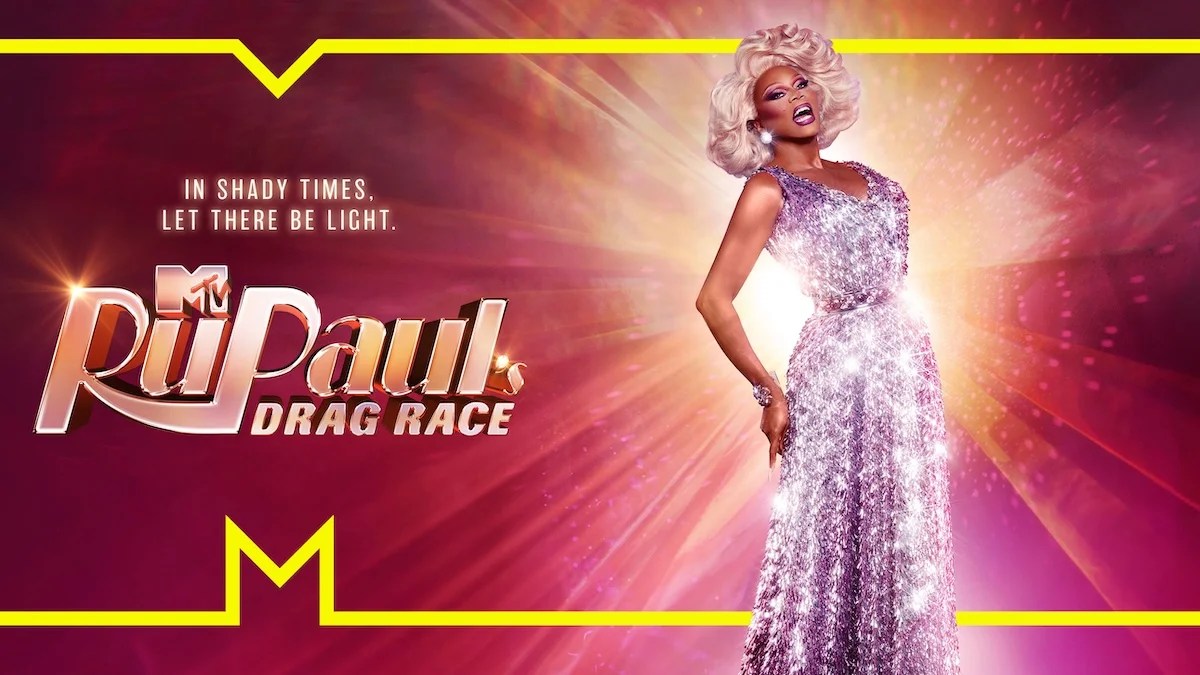

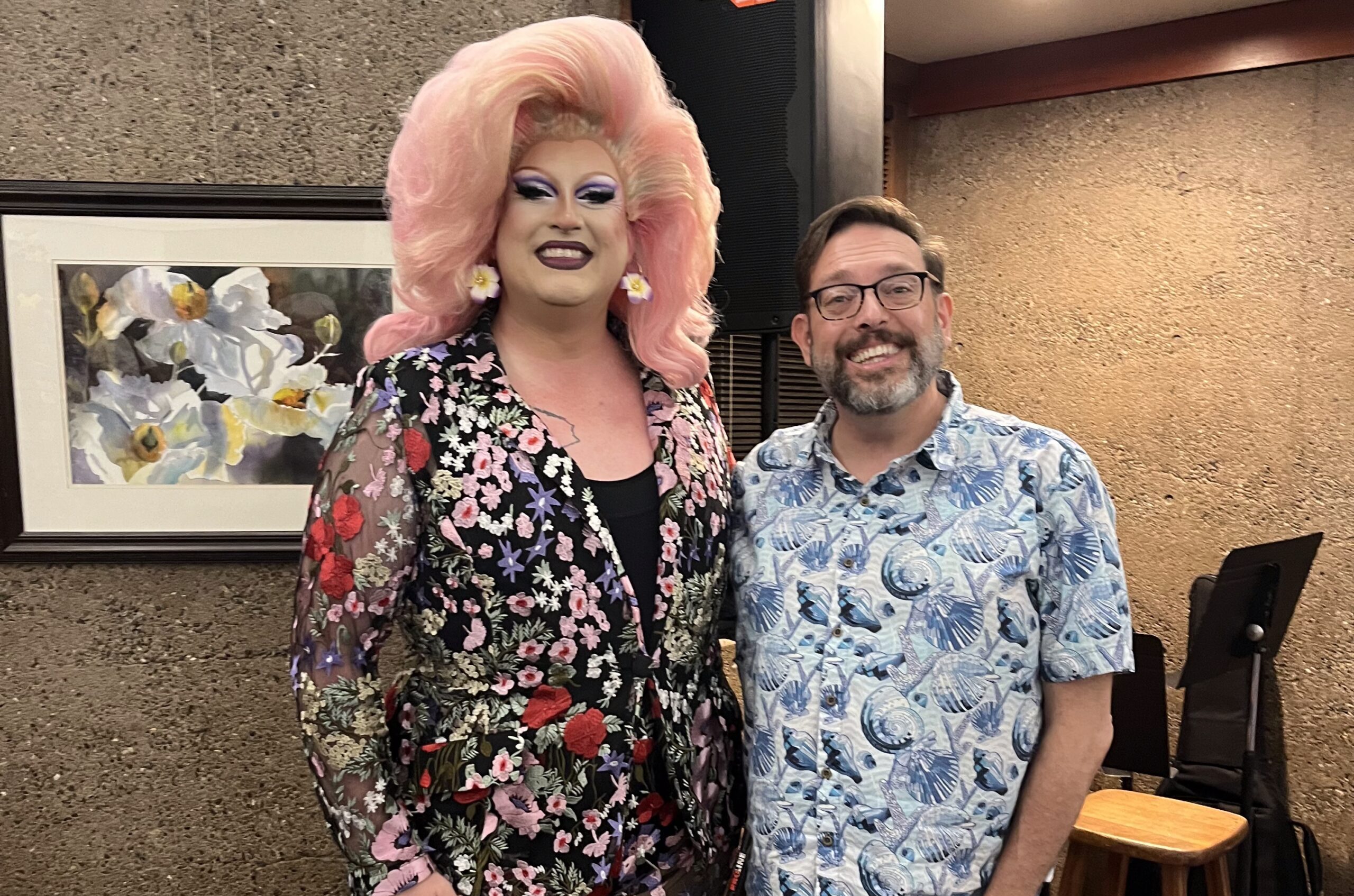
Glad to see you’re still thinking and feeling Matt. Above all you are still listening with your heart.
That is all anyone including God could ask of you.